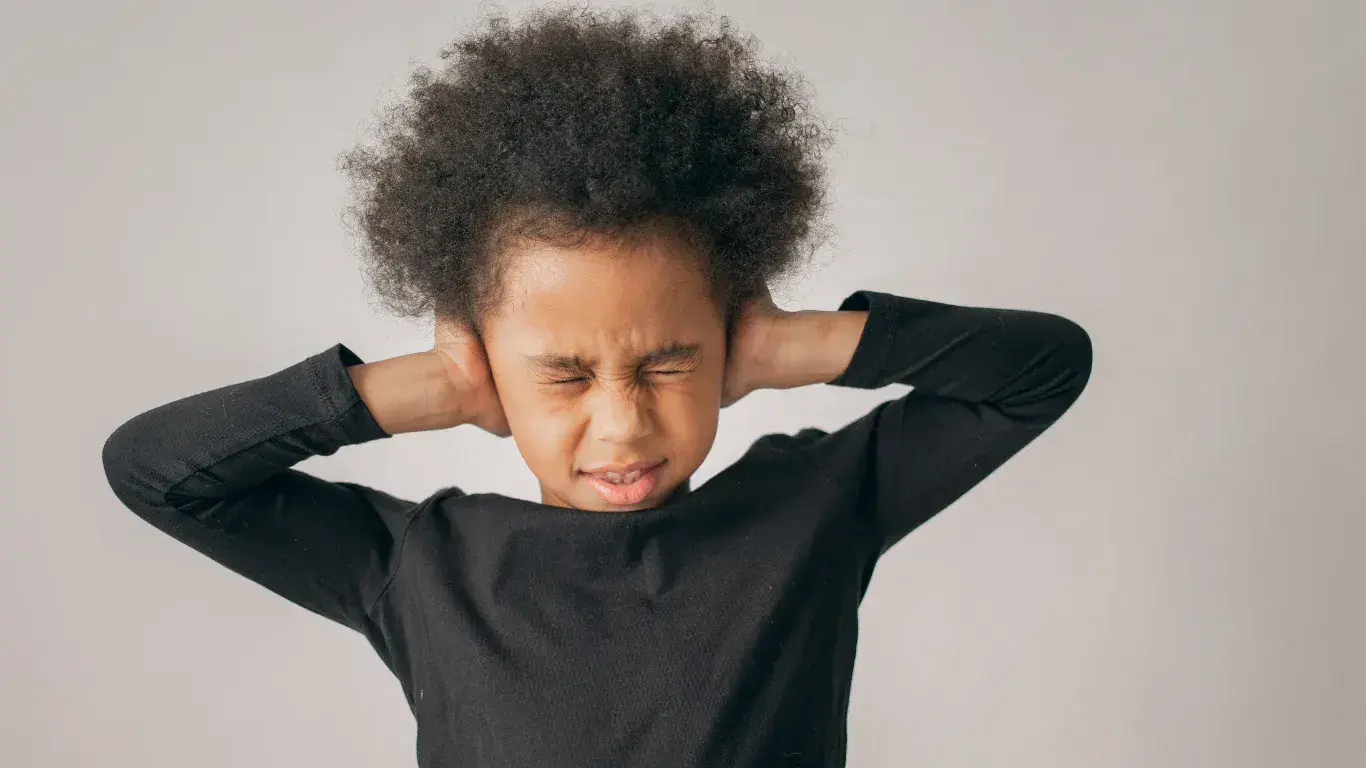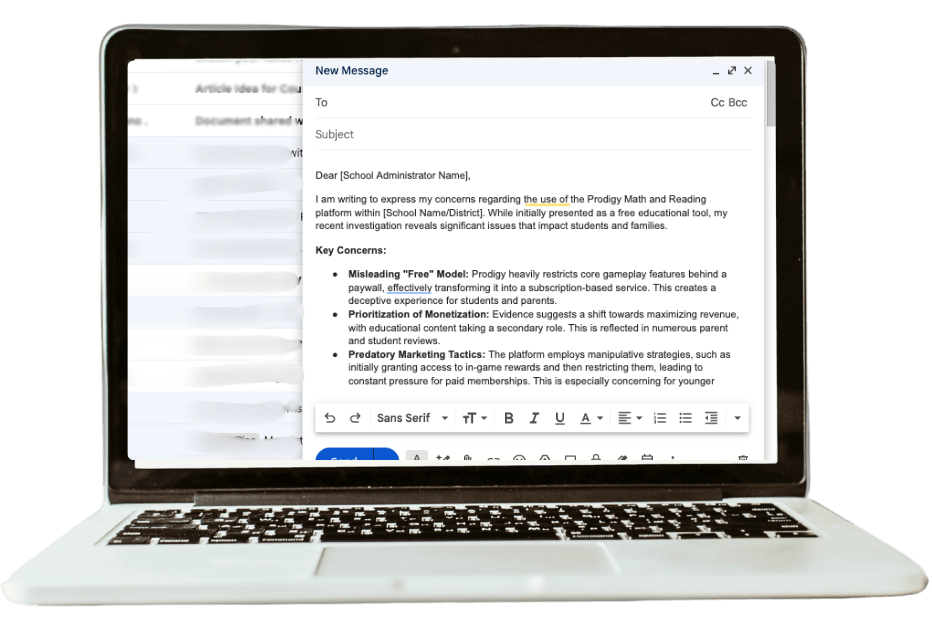Sensory processing has become a hot topic amongst parents, educators, and pediatricians in the past decade. JAMA Pediatrics estimates that about 16% of children have sensory processing difficulties. Recent research has shown links between sensory processing differences and early exposure to screens, and has many parents wanting to know more about how screens may be impacting early brain development.
What exactly is sensory processing?
Sensory Processing refers to the way our brains receive and interpret information through the senses. Our brains sort through a multitude of stimuli at a rapid pace and decide what to attend to, and what to ignore.
How effectively the brain merges the information it receives determines a lot about our behavior. It dictates whether we can
- self-regulate
- socialize appropriately
- adapt our behaviors to meet the demands of a situation or environment (Miller, Mulligan, Schoen, & Sullivan, p. 2).
- maintain attention
Let’s think about your “typical” trip to the grocery store with your toddler.
Just like you do every week, you enter a crowded grocery store and proceed to buy your toddler a donut to occupy them during the trip. Your toddler sees aisles of tempting snacks, an array of strangers, and a display of colorful birthday balloons. They hear a woman yelling over the counter to order turkey, a toddler crying an aisle over, and the sound of a supply cart being pushed down another aisle.
They smell the donut in their hand, as well as the rotisserie chickens being placed in the display. They taste the sweetness of the donut, but also start to feel the sticky residue all over their hands. Suddenly, someone makes an announcement over the loudspeaker, and you don’t immediately attend to your little one, who is asking for a wipe for their fingers. Loud sounds, conflicting smells, sticky hands, bright colors… information overload.
Why does this happen?
When our brains cannot sort through the input fast enough, it starts to feel like a collision of chaos internally. This chaos can feel disregulating, upsetting, anxiety-provoking, and irritating. These are the moments when we, as parents, are taken off guard by what feels like a sudden massive reaction or “unwarranted” behavior response from our child. Some children may get suddenly aggressive, some may tantrum, some may even flee.
Kids with sensory processing differences can present with a wide range of behaviors. Cleveland Clinic lists a variety of different behaviors to look out for if you think your child may have sensory differences. They include…
- Constant need to touch things, or recoil and aversion to physical touch
- Reactions like covering ears or eyes to loud noises or bright lights, such as emergency vehicles or alarms
- Refusing to wear certain clothes or fabrics
- Gagging on or refusing certain textures of foods
- Trouble with gross or fine motor skills
Some parents also notice extreme behavior outbursts that are intense and difficult to move on from. Some may notice heightened panic, aggression, or anxious behaviors in highly stimulating environments (think carnivals, group play dates, and birthday parties!). Often, parents will say that things they think should be fun, never end up feeling fun for their child.
Experiences like grocery shopping may feel mundane or average to many adults, but to a small child with an underdeveloped nervous system, they can challenge the brain in ways that can cause ripple effects on behavior and coping skills.
Screen Exposure and Atypical Sensory Processing
A recent study published in JAMA Pediatrics has gained newsworthy attention, as it revealed that longer amounts of screen time in early development years may be associated with atypical sensory processing later in childhood.
It showed high correlations between greater screen exposure at 12 months, 18 months, and 24 months, and a higher likelihood of developing maladaptive sensory processing later in childhood. (Heffler KF, Acharya B, Subedi K, Bennett DS., 2024).
Does this mean screens cause sensory processing disorders?
Not exactly. But as the study explains, it adds atypical sensory processing to a long list of developmental concerns associated with digital media exposure in very young children, including language delays, attention disorders, and sleep disruptions (Heffler KF, Acharya B, Subedi K, Bennett DS., 2024)
As parents, sometimes news segments like these can feel overwhelming or discouraging. Screen time is so ingrained in our everyday culture and parenting experience that it feels almost impossible to minimize or avoid.
The purpose, however, is not to dishearten us. It is simply to remind us that digital media is affecting the way our children develop. It is a necessary and essential part of life for everyone, but it also comes with risks and consequences for our kids.
Considerations for Parents
If there are screen time habits you want to change, you can absolutely do it. There are a multitude of helpful resources, websites, and blogs (like this one!) dedicated to helping parents take control of their kids’ digital media use.
Often there are layers of influence that affect parents’ abilities or desires to limit screen time. If you are experiencing challenges beyond your children’s screen time use that make setting limits difficult, reaching out for support is a great place to start. Talk with your primary care physician, pediatrician, pastor, or child’s school. Tell them about your concerns or need for support whenever possible.
Getting Support
If you’re left wondering if your child has sensory difficulties, talk to your child’s pediatrician about the symptoms you are noticing. Reach out and start the conversation.
Sensory sensitivities are common and are not all bad. Generally, they are not considered problematic unless they begin to interfere with a child’s everyday function. Your pediatrician may quickly reassure you that what you are noticing is typical behavior. They may also refer you to an Occupational Therapist, medical specialist, or other therapist to further evaluate your child’s symptoms and make recommendations for support or treatment.
Research is continually finding new ways to understand the impact of digital media on developing brains. As parents, staying educated and up to date can help us to make more intentional and purposeful decisions around media use and screen time at home.

Authored by: Courtney G. DiStefano, CCLS
Courtney G. DiStefano is a Certified Child Life Specialist, child development expert, and mom of three with nearly fifteen years of clinical experience serving children and families in hospitals and social-service settings.
References
Heffler KF, Acharya B, Subedi K, Bennett DS. Early-Life Digital Media Experiences and Development of Atypical Sensory Processing. JAMA Pediatr. 2024;178(3):266–273. doi:10.1001/jamapediatrics.2023.5923
Miller LJ, Schoen SA, Mulligan S, Sullivan J. Identification of Sensory Processing and Integration Symptom Clusters: A Preliminary Study. Occup Ther Int. 2017 Nov 16;2017:2876080. doi: 10.1155/2017/2876080. PMID: 29348739; PMCID: PMC5733937.




